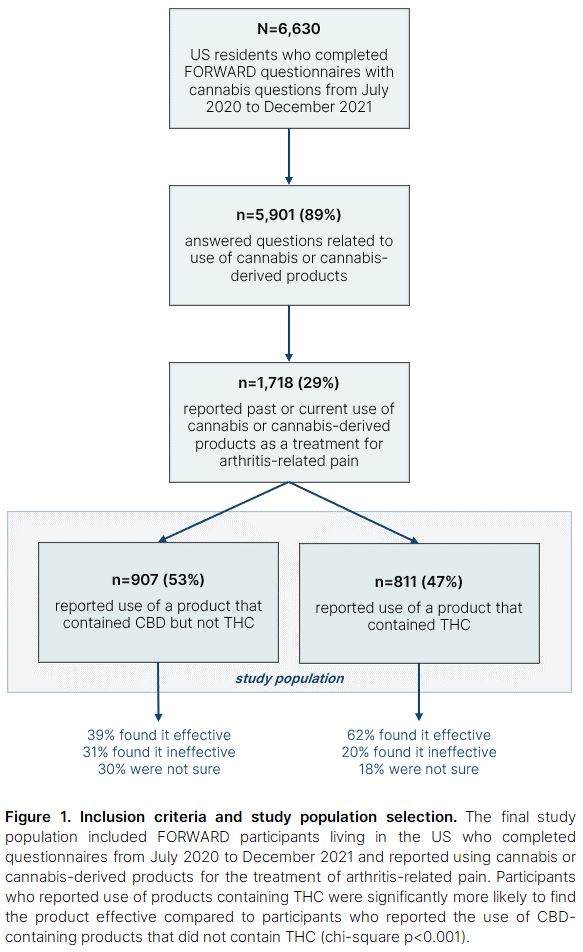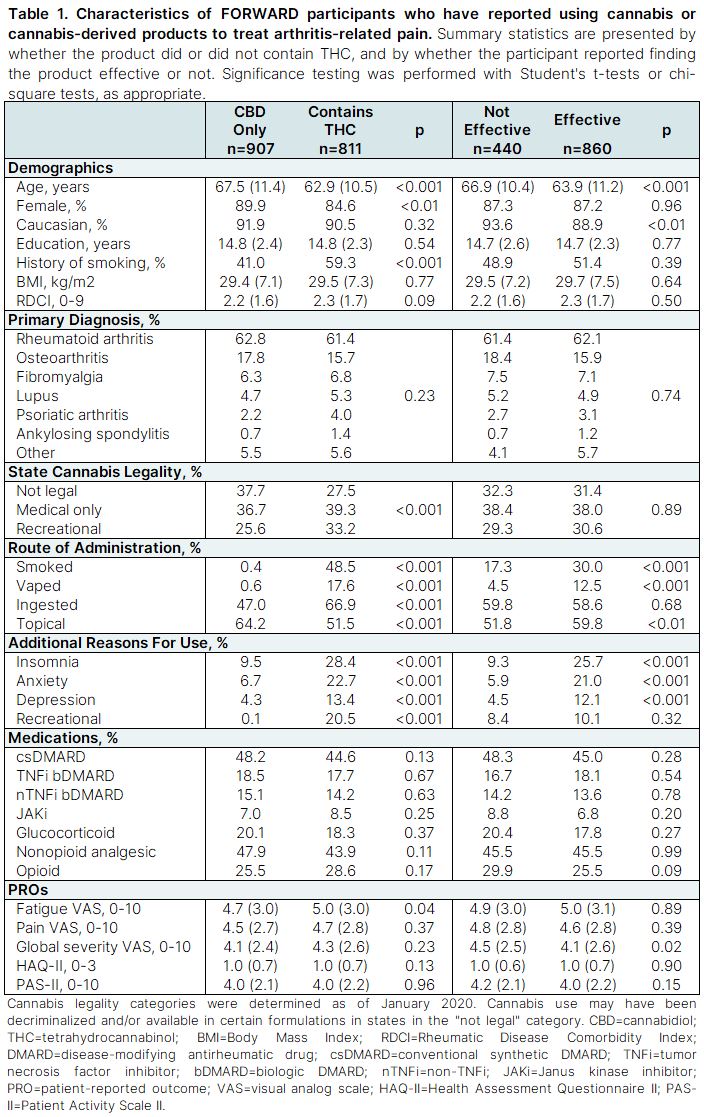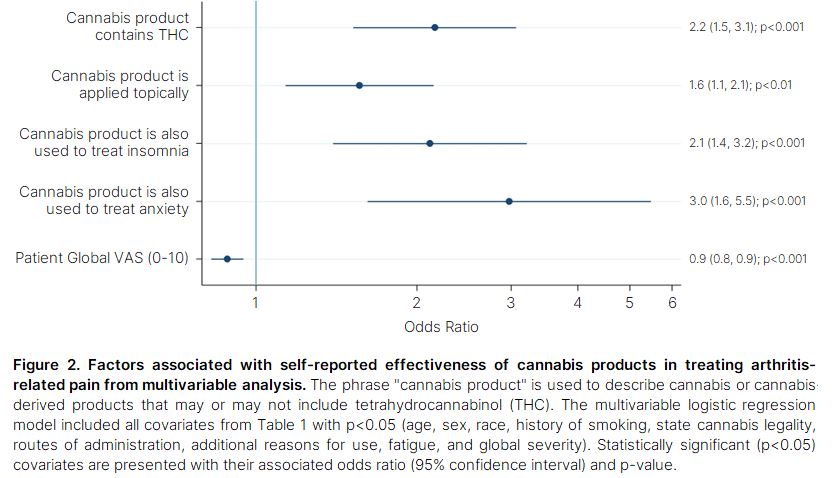Session Information
Date: Monday, November 13, 2023
Title: (1200–1220) Patient Outcomes, Preferences, & Attitudes Poster II
Session Type: Poster Session B
Session Time: 9:00AM-11:00AM
Background/Purpose: Pain management remains a significant challenge for individuals with rheumatic diseases (RDs), often causing patients to seek complementary or alternative treatments to traditional medications. Cannabis has been investigated as a potential option due to its immunomodulatory and analgesic effects, and arthritic pain is a commonly reported reason for cannabis use.1 However, little is known about its safety or effectiveness in this population, and existing products are incredibly diverse and often unregulated. The objective of this study was to assess differences in self-reported effectiveness of cannabis or cannabis-derived products (hereafter simply “cannabis”) for the treatment of arthritis-related pain by the presence or absence of tetrahydrocannabinol (THC).
Methods: The study population included adults in the FORWARD Databank who reported use of cannabis for treating arthritis-related pain. Participants were categorized into two groups: those who used products containing cannabidiol (CBD) but not THC, and those who used products containing THC with or without CBD. Univariate analyses were performed to examine differences between these groups, as well as between those who found cannabis effective or ineffective. Characteristics that varied significantly (chi-square or t-test p< 0.05) were included in a multivariable logistic regression model to assess the relationship between the presence of THC and effectiveness of cannabis in treating arthritic pain.
Results: Among 1,718 participants using cannabis for arthritis-related pain, 811 used THC-containing products while 907 used CBD-only products. In univariate analysis, THC users were significantly more likely to find cannabis effective compared to CBD-only users (62% v 39%, p< 0.001; Figure 1). THC users were younger, more likely to be male, more likely to live in a state where cannabis is legal, more likely to smoke, vape, or ingest cannabis, less likely to use topical cannabis, and more likely to use cannabis for other reasons in addition to pain relief (Table 1). After adjusting for confounders, logistic regression showed that participants using cannabis products with THC had significantly higher odds of finding cannabis effective for pain reduction (OR 2.2 [1.5, 3.1]; p< 0.001; Figure 2). Participants who used topical cannabis or who also used cannabis to treat insomnia or anxiety had significantly higher odds of finding cannabis effective, while participants with higher global VAS scores were less likely to find cannabis effective.
Conclusion: This study provides valuable insights into the use of cannabis for pain management in individuals with RDs. Our findings suggest that cannabis products containing THC and/or that are applied topically are more likely to be perceived by patients as effective. These results highlight the importance of considering the specific formulation of cannabis products as well as their route of administration when evaluating their therapeutic potential. Prospective studies, particularly randomized controlled clinical trials, are needed to better understand efficacy and potential risks of cannabis use in this population.
1. Wipfler, K. et al. Arthritis Care & Research74, 2091–2099 (2022)
To cite this abstract in AMA style:
Wipfler K, Zeiger J, Michaud K. Self-Reported Effectiveness of Cannabis for Arthritis-Related Pain [abstract]. Arthritis Rheumatol. 2023; 75 (suppl 9). https://acrabstracts.org/abstract/self-reported-effectiveness-of-cannabis-for-arthritis-related-pain/. Accessed .« Back to ACR Convergence 2023
ACR Meeting Abstracts - https://acrabstracts.org/abstract/self-reported-effectiveness-of-cannabis-for-arthritis-related-pain/



